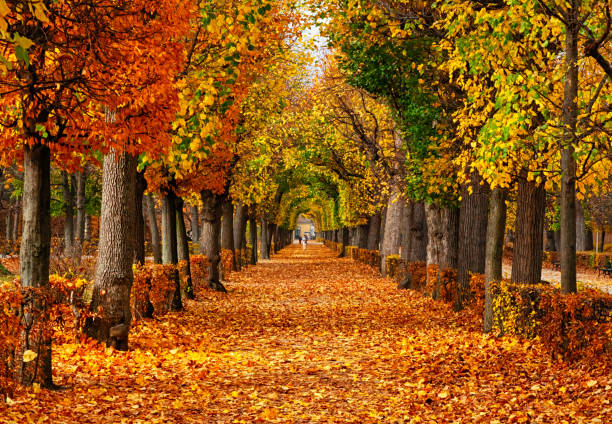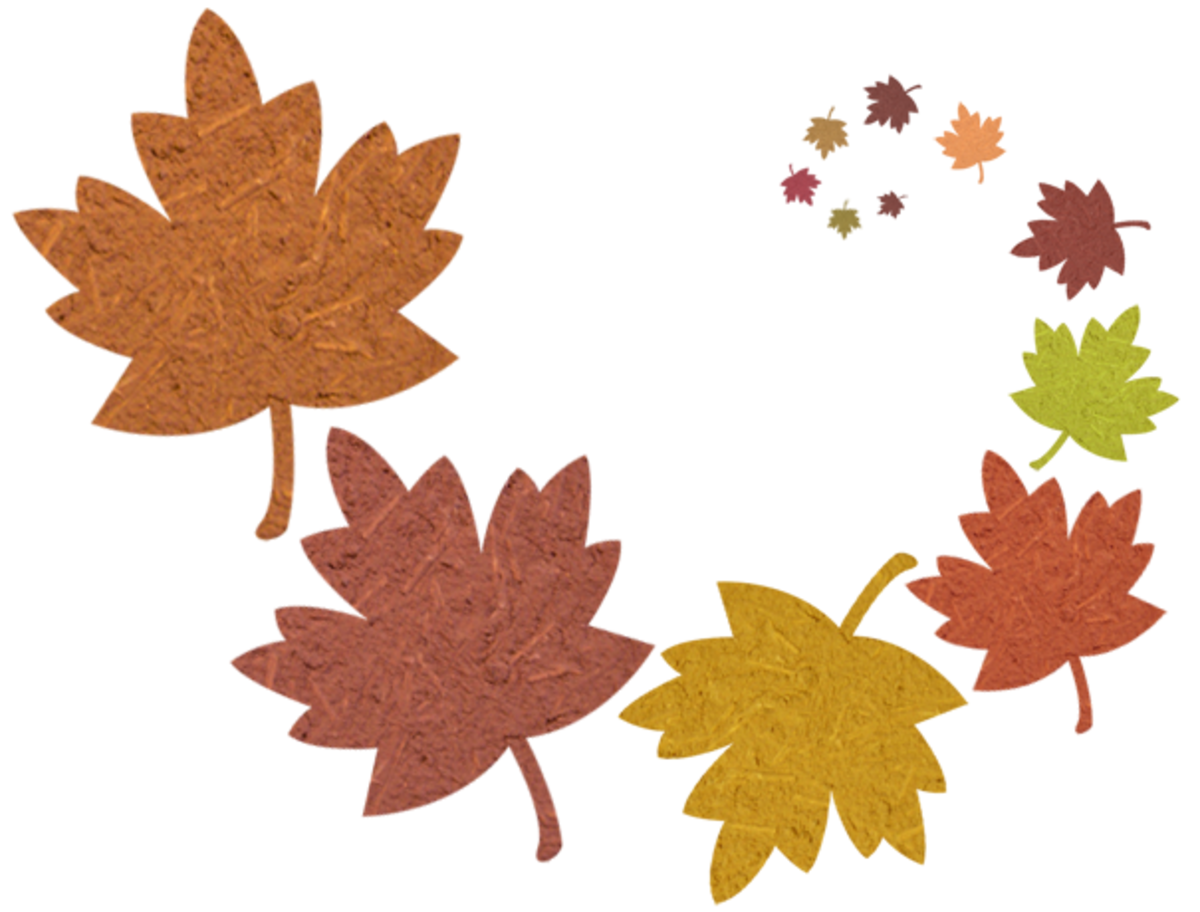A Lesson from November

Like the other months of the year, November has a large number of celebration days, but except for Veterans Day and Thanksgiving Day, those other days have a lighthearted touch, seem somewhat bland, or are even trivial. Nothing says November like the gorgeous colors that shout to us from neighborhood yards, roadside hedges, and hillsides. Turn a corner on a street and you’re met with an explosion of vibrant, variegated color. All this riotous beauty exists in the fall of the year to stimulate our senses. Individuals as well as groups travel long distances, especially to New England, to enjoy the natural glory of the season. People who live in arid areas where the leaves don’t change color have my sympathy.
But the fall, like the other seasons of the year, isn’t subtle in reminding us about one of the major facts of life—change. Every year, right before our eyes, winter turns to spring, spring to summer, and summer to fall. Fall camouflages the bald truth about inevitable change by giving us ravishing natural beauty. Seasons of change exist in nature, and we, too, have our seasons that bring us different experiences, sometimes pleasurable like the gala beauty of the fall; but at other times we go through painful and undesirable patches like the barren, stripped-down branches left bare of their leaves after the fall.
Poets have always been attracted to the seasons. One of my favorite poets, Gerard Manley Hopkins, wrote about nature in its various forms. In his poem “Spring and Fall,” Hopkins explores the topic of seasonal change evident in the fall. The subtitle of the poem, “To a Child,” makes its meaning more poignant. The first few lines are strikingly meaningful.
Margaret, are you grieving
Over Goldengrove unleaving?
Leaves like the things of man, you
With your fresh thoughts care for, can you?
Ah! as the heart grows older
It will come to such sights colder
By and by, nor spare a sigh
Though worlds of wanwood leafmeal lie.
The words are addressed to a young child who is crying because the trees are losing their leaves. The use of the coined word “unleaving” paints an apt picture of the leaves fallling from the trees, which are unleaving as if, like humans, they are undressing. In mourning the falling of the leaves, little Margaret is mourning her own mortality even before she is able to understand it or put her sense of loss into words.
The fall tells us what Margaret in her innocence cannot understand. She weeps without knowing why. We adults don’t weep when we see the gorgeous trees shed their leaves, but we get a hint from nature about our mortality. We may unconsciously experience a wistful twinge of understanding and heave a sigh when we look at the magnificent display, hoping the season will last. As the author says later in the poem, “It’s the blight we were made for.” We’re headed for “sights colder” than piles of fallen leaves.
I recently heard a University of Delaware professor, looking at the fallen leaves from the viewpoint of a conservationist, suggest that we shouldn’t rake the leaves in the fall and discard them but leave them to decompose, puting back organic material into the soil, as happens in forests. That way, he says, new growth will result from the enriched soil. This suggestion might point to a softening of the blow of inevitable change, encouraging us to leave behind something of ourselves for future generations, despite the change.
The fall teaches us that eventual change comes to us all; however, instead of mourning and being disheartened that it will happen, we ought to pray with the Psalmist, “So teach us to number our days that we may apply our hearts to wisdom” (Psalm 90:12). November can teach us that when “the days dwindle down to a precious few,” as a popular singer of bygone days reminded us, we can enjoy their beauty and face them with wisdom and courage.
Blessings,
Judith
~~~~~~~~~~~~~~~~~~~~~~~~~~~~~~~~~~~~~
“No spring nor summer beaty hath such grace
as I have seen in one autumn face.”
Poet John Donne

*****************************************************
HELLO EVERYONE,
I HOPE YOU’LL ENJOY READING THIS MONTH’S BLOG POST. NEXT MONTH’S POST WILL BE THE FINAL ONE. ALL THE PREVIOUS ARTICLES WILL BE AVAILABLE ON THE WEBSITE TO BE READ AT YOUR LEISURE. Judith
8 Comments
Nanette
Leaves, as I look out my front door the maple leaves and oaks have laid a carpet of deep leaves every.
Now is the time to enjoy the colors as they change. But the leaves are a sign that winter is almost upon us.
There will be those dark gray days of rain and snow, but Spring 2024 will be here again and we can rejoyce
with each emerging flower.
Thank you dear Judith for your wonderful blogs which have been a great learning experience.
Love Nan X
Judith Nembhard
Hi Nan,
Yes, the beauty is intoxicating. We all enjoy it, but, as you said, those dark, gray winter days are coming. I dread them, but when they come, I bundle up and hope for the spring. Thanks for being a loyal reader. Judith
Fartema
Judith, your blog post about fall lifted my spirit. I enjoyed learning about Hopkins’ poem, ‘Spring and Fall’.
Today as I made my way to an auto body repair shop, I took a scenic backroad route to avoid the busy expressway. I leisurely drove, and admired the colorful autumn leaves. What an awesome view!
Soon I found myself entering Acworth, GA Downtown Historic district. The speed limit was a good pace for me. However, it was time to leave the serene scenic route, and join the rat race on the highway. I missed a turn and panicked. I stopped at a church parking lot to reset my GPS. On the church marquee was a much needed message just for me, ‘Jesus take the wheel.’ My scenic fall route was abruptly interrupted. I needed to get to my destination – an auto collision center. I was no longer on an ‘imaginary trip’ to Gatlinburg, TN to enjoy the beautiful fall season. My vehicle, although drivable, needed repairs.
Judith Nembhard
Fartema, such an enjoyable comment! There are so many places along our travel route where we can enjoy the grandeur of the fall colors. Sorry your enjoyment was interrupted, but it sounds like me–always getting lost trying to find a new place. Too bad about your damaged car, but glad you are okay. November lasts for a while. Enjoy its show. JN
Evadne Barrett
Great inspirational reading:thank you Lady Judith!
Judith Nembhard
Well, well!! Am I ever surprised! Mrs. Barrett, it’s great hearing from you. I’m glad you read the blog post and made contact. I’m going to try to take this contact further. Thanks for your comment. JN
Ouida Westney
Judith: Awesome!! What a wonderful message concerning the beautiful falling leaves of autumn and their application to the lives of human beings!
I have been blessed by your sharing this. Thank you so very much. It is my hope that, with God’s help, I will leave beautiful things behind.
Thank you very much, also, for all the other wonderful, well-written, thought provoking blogs that you have shared with us in the past. May God’s blessings be with you continually.
Judith Nembhard
Hello Ouida, I pondered for quite sometime about the message of November. My thoughts even went back to a poem I taught my little ones in the first grade a long time ago about “November woods.” Unfortunately, I couldn’t remember even one line of the poem. I hope, though, that appreciation for the beauty of the season stayed with them.
I’m glad the post elicited your delight as well as introspection. The natural world teaches us quite a lot, doesn’t it? Thanks for your comment and
good wishes. JN